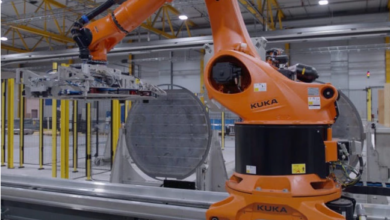Tenaris demonstrates hydrogen transportation in large pipeline
Tenaris is committed to reducing its carbon emissions and developing a portfolio of products for the energy transition.

Tenaris has performed an experimental activity to qualify medium and large diameter pipes of up to X70 grade for high-pressure gaseous hydrogen transportation with a hydrogen content of up to 100% at 200 bars.
Pressurised pipelines are considered a relevant solution for transporting molecular energy from production or storage to the point of consumption.
Due to the susceptibility of steel to hydrogen embrittlement, the pipeline material needs to be qualified to demonstrate its readiness for hydrogen transportation and the new standards and guidelines require specific characterisations in gaseous hydrogen environments.
Hydrogen atoms can easily diffuse into the metal’s crystalline lattice due to their small size. The interaction with the metal’s microstructure can eventually degrade the metal’s mechanical properties, mainly involving a loss in mechanical ductility, reduced fracture toughness, and loss of fatigue resistance.
Purity, temperature, and pressure can affect the severity of the embrittlement, so it is fundamental to determine how new and existing pipeline materials react to the different compositions, pressures, and temperatures.
Tenaris is addressing the need for reliable and high-performance materials in hydrogen environments with the development of THera, a new technology that offers a long-lasting and recyclable material with a verified product lifecycle.
Philippe Darcis, Director at Tenaris, said, “The experimental activity we carried out to qualify seamless and UOE LSAW pipes of up to grades X70, according to ASME B31.12 requirements, demonstrates the potential of THera™ solutions for hydrogen pipeline transportation of up to 200 bar with an extra safety margin.”
